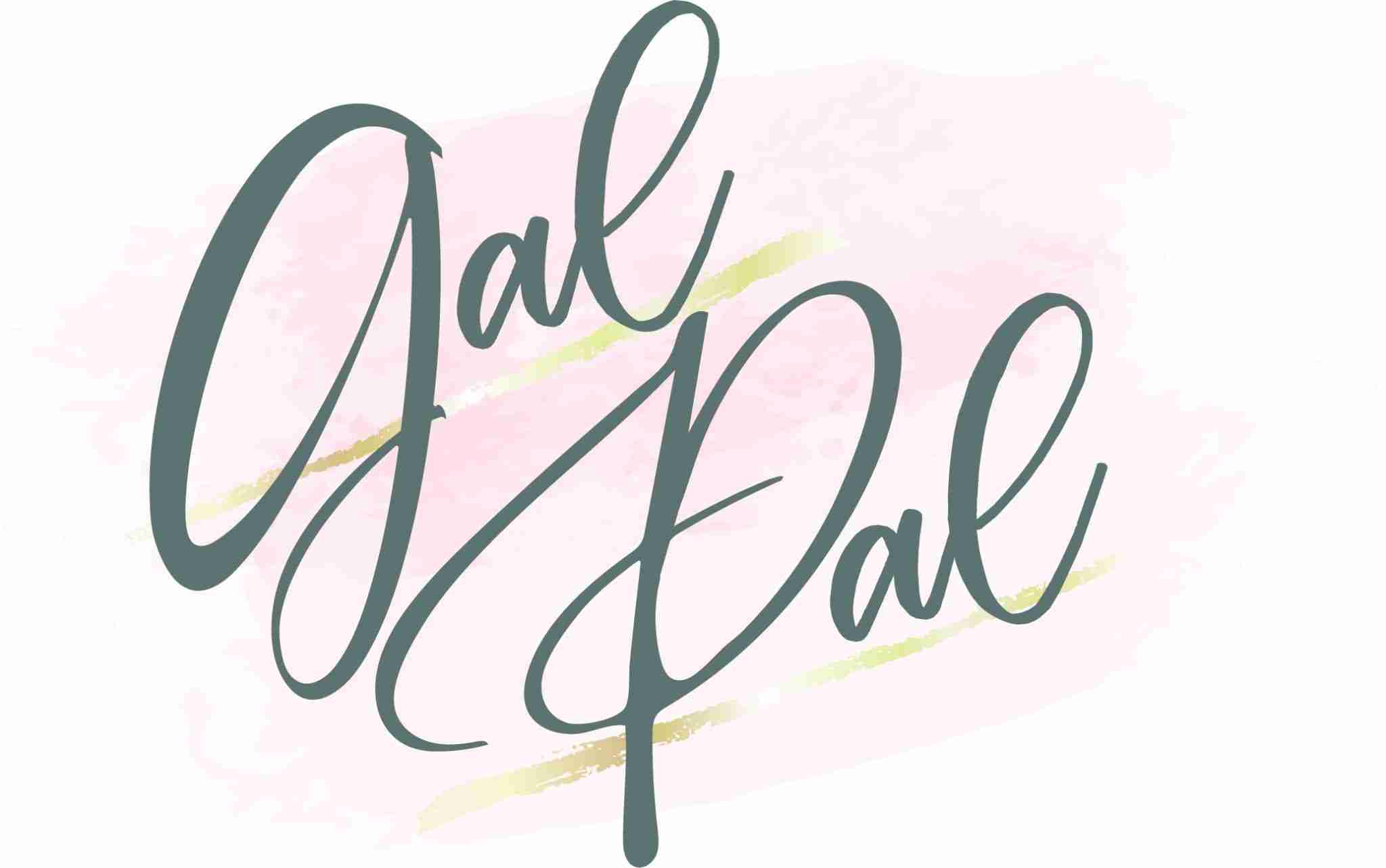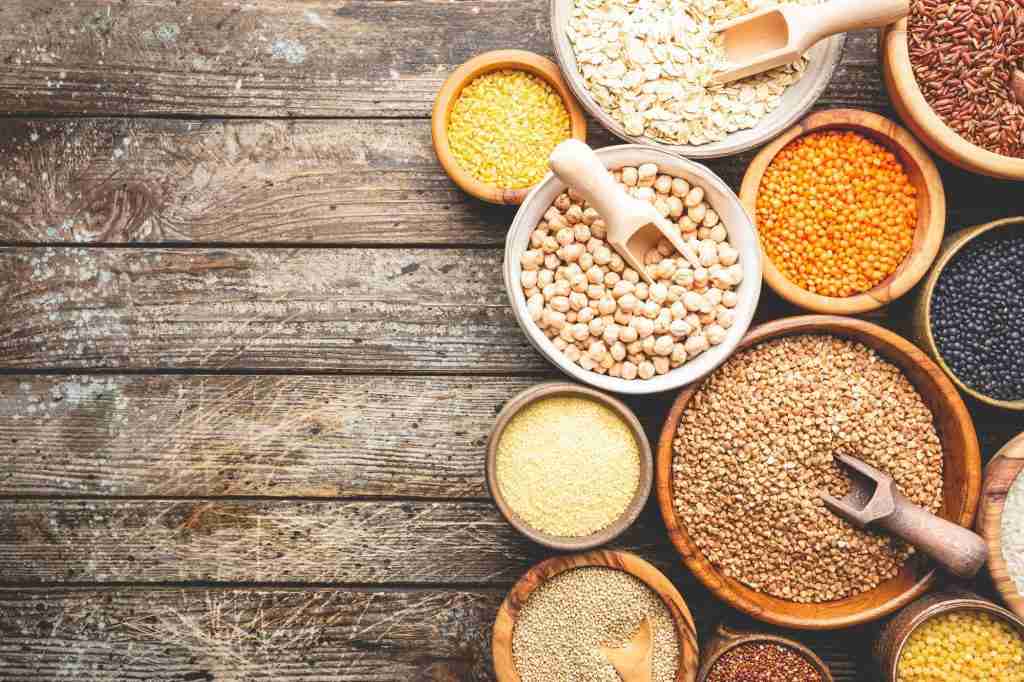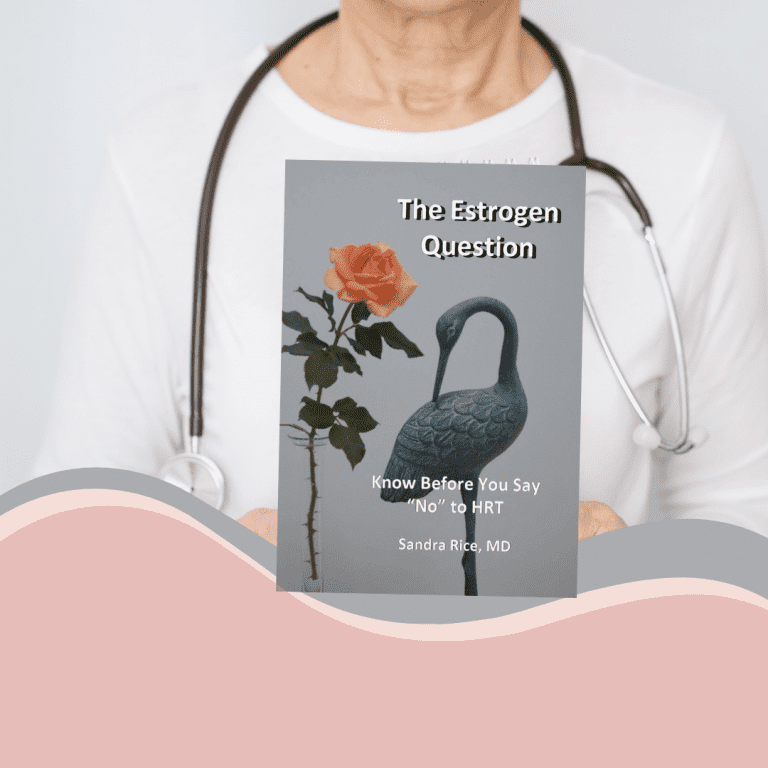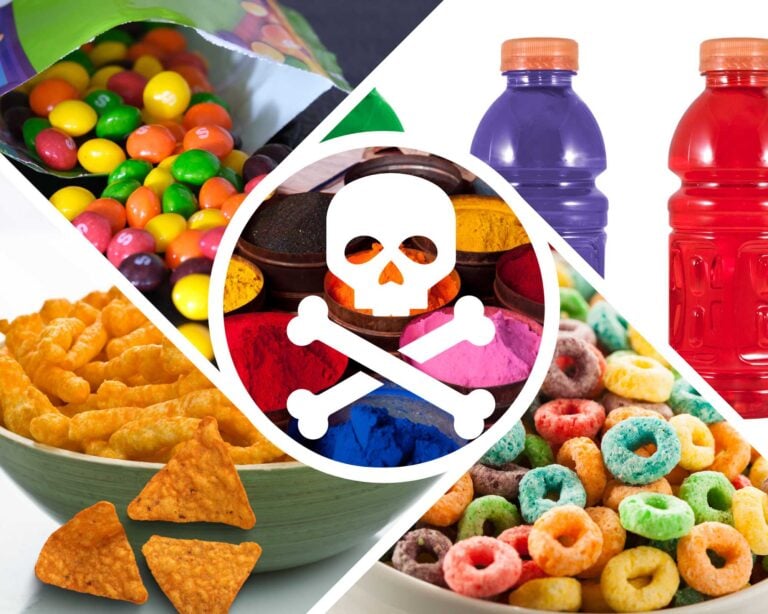What To Eat To Reduce Anxiety
Anxiety disorders are the most common mental illness in the United States. Studies suggest that one in ten people suffer from some anxiety.
The foods we eat have an impact on the managing and lowering the level of anxiety we experience.
According to the American Psychiatric Association, teens ages 13-18 experience a very high percentage of anxiety at 33%. That is one in three adolescents friends!! Eating the proper foods will contribute to better mental health for all family members.
Did you know that women are twice as likely to be diagnosed with the disorder?
Symptoms Of Anxiety
The anxiety symptoms can vary from panic attacks, restlessness, rapid breathing, and trouble concentrating. The National Institute of Mental Health states several anxiety disorders, including generalized anxiety disorder, panic disorder, and various phobia-related disorders. Symptoms of anxiety can be very different from one person to the next.
For some people, an anxiety disorder can be treated with significant lifestyle changes. Research shows that the types of foods we consume can have a positive effect on reducing anxiety. Read more about other ways to reduce anxiety here.
How To Control Anxiety By The Foods You Eat
Take control of your anxiety by consuming specific foods and supplements that lower cortisol, known as the “stress hormone,” because your adrenal gland releases it when you’re in a stressful situation or when your body is under physical stress. It’s the key to helping your body reduce inflammation.

Cortisol is sometimes known as the “stress hormone” because your adrenal gland releases it when you’re in a stressful situation or when your body is under physical stress (like inflammation). It’s the key to helping your body manage its fight-or-flight instinct — which is a good thing.

What To Eat That Will Calm Anxiety
-
Foods High In Magnesium
Research has shown that people who have low magnesium in their diets tend to experience more anxiety. In the brain, magnesium regulates neurotransmitters that send messages to the brain and body.
- Avocados.
- Bananas.
- Broccoli.
- Dark chocolate.
- Pumpkin seeds.
- Spinach.
- Beans
- Grains
- Nuts
- Seeds
2. Whole Grain Foods
Those that can tolerate gluten may benefit from foods with whole grains, like whole-grain pasta and bread. Whole-grain foods can have a powerful effect on anxiety.
Whole grains contain tryptophan, which becomes serotonin – a calming neurotransmitter that create healthy energy while reducing hunger – both important for anxiety.
Studies have shown that actual whole grains (some “whole-grain foods” still contain processed ingredients) have several benefits for those with anxiety:
Whole grain is rich in magnesium, and magnesium deficiency may lead to stress.
- Barley
- Bulgur
- Millet
- Oats
- Quinoa
- Corn
3. Green Or Chamomile Tea
These teas reduce anxiety. Green tea contains an amino acid called L-theanine that has an anti-anxiety effect by increasing the production of serotonin and dopamine. Chamomile is an herb with high amounts of antioxidants shown to reduce inflammation markets with those with anxiety.
4. Probiotic Foods
If your gut is happy, so is your mood. The growing body of evidence shows that a healthy gut microbiome creates happiness and brain health. Who knew, right?
The microbiome is also found in foods that contain prebiotics, such as garlic, onions, asparagus, leeks, onions, artichokes, bananas, and chicory roots.
Miso is a popular option for those who want to restore their gut microbiome. The healthier the microbiome, the healthier the brain. In a research study, when harmful bacteria in the gut were replaced with natural bacteria, the brain was calmed, and anxiety waned.
Another fermented food is yogurt which also includes good bacteria. Yogurt contains healthy bacteria called lactobacillus and bifidobacteria that can positively affect brain health. Other clinical studies have also suggested that yogurt and dairy products may also have an anti-inflammatory effect on the body, which can help lessen signs of anxiety, stress, and depression.
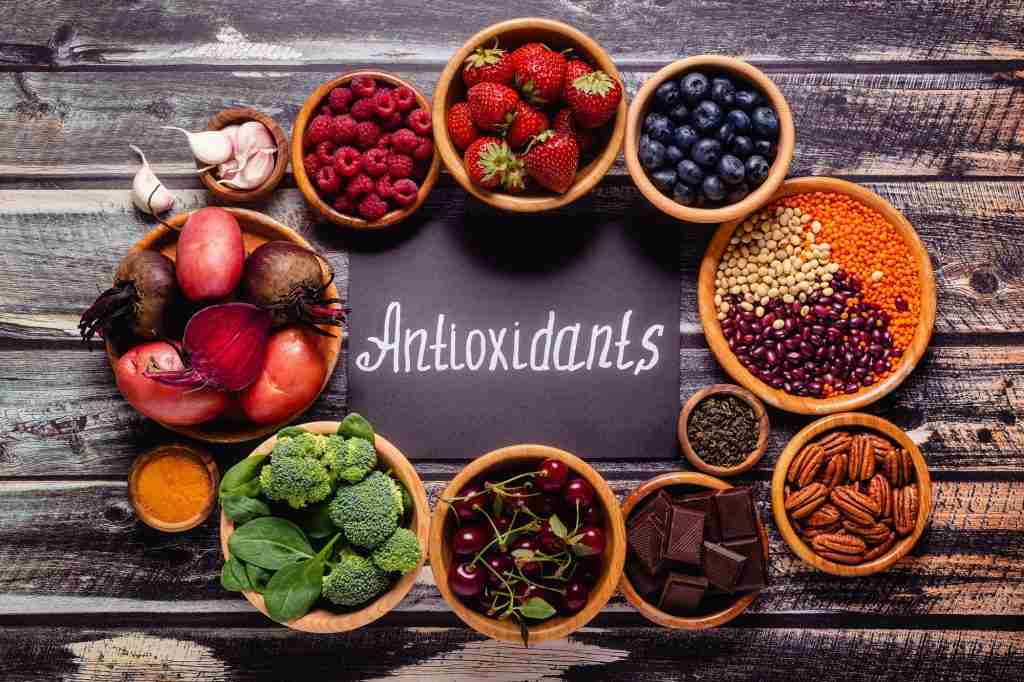
5, Antioxidants
People with anxiety tend to have a lowered total antioxidant state which means they do not eat enough antioxidants rich foods. Try to consume antioxidant-rich foods such as
Also, note that Brazil nuts and almonds are also a great source of vitamin E, another mighty antioxidant, which can be significantly beneficial for treating anxiety. Some studies have shown that low levels of vitamin E can lead to depression in some people.
Many health experts have long believed that dark chocolate might help reduce anxiety and stress levels. One study done on a group of female students discovered that forty grams of this decadent treat helped reduce perceived stress in the participants.
Dark chocolate is a rich source of polyphenols, especially flavonoids, an antioxidant that benefits brain function. Flavonoids boost blood flow to the brain and promoting its ability to adapt to stressful environments.
Acai berry is essentially the newest superfood and one that has received a great deal of press recently. It may not be the weight loss fruit that many people claimed it was, but acai berries are still rich in phytonutrients like blueberry, and the antioxidant levels are off the charts.
- Berries
- Tart cherry juice,
- Prunes,
- Walnuts,
- Pecans,
- Leafy greens
- Artichokes
- Broccoli
- Turmeric
- Ginger
- Beans
- Dark chocolate
- Acai berry
6. Omega 3- DHA AND EPA
EPA and DHA are potent omega-3 fatty acids that help with brain function. They regulate the release and flow of dopamine and serotonin; both offer a calming effect.
- Anchovies.
- Avocados.
- Chia seeds.
- Flax seeds.
- Herring.
- Mackerel.
- Olive oil.
- Oysters.
- Salmon
- Sardines.
- Tuna.
- Walnuts
7. Zinc Rich Foods
People who have a decreased level of zinc in their bodies and an increased level of copper are more prone to symptoms of depression and anxiety.
Eating a proper and balanced diet means getting all the vitamins and minerals that our body needs to function optimally. Experts have found is that a lack of zinc in the body can lead to anxiety. Foods high in zinc can help to alleviate these symptoms.
- Oysters
- Meat
- Legumes
- Breakfast cereals
- Hummus
- Whole Grains
8. Vitamin D Rich Foods
Researchers have discovered that a vitamin D deficiency can result in mood disorders like anxiety and depression. A study published in the Journal of Affective Disorders states sufficient evidence proving that vitamin D helps with depression. This versatile food also contains tryptophan, an essential amino acid that helps the body create serotonin, a chemical neurotransmitter that helps regulate mood, behavior, memory, and sleep. Serotonin is also believed to improve brain function and relieve anxiety.
- Rainbow trout,
- Light tuna,
- Sardines,
- Tilapia
- Flounder
- Dairy and Fortified Soy Alternatives
- Mushrooms, raw
- Orange juice,
- Almond milk
- American Cheese
- Kefir
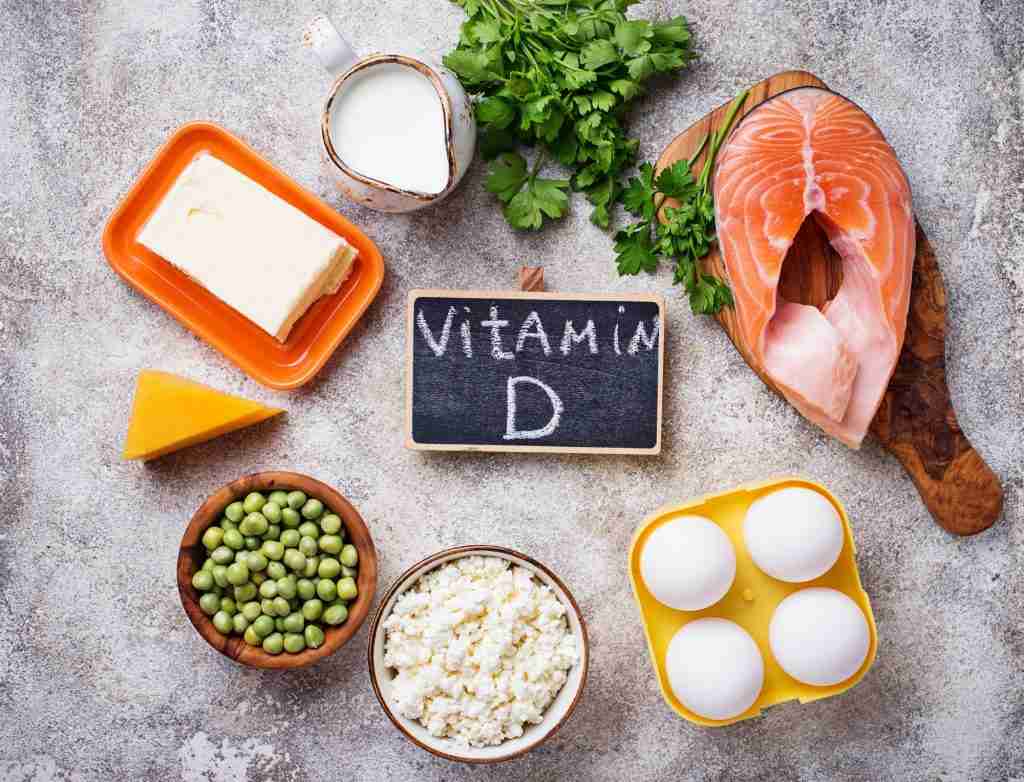
9. Amino Acids
Beef and other red meats also contain different amino acids critical for one’s mental health and brain function. Many types of meat contain B vitamins, including thiamine or vitamin B1, which affect mood.
Meats rich in B vitamins that help ward off anxiety include beef, pork, and chicken. Protein found in meat also helps to stimulate the production of norepinephrine and dopamine, neurotransmitters similar to serotonin that carry.
- Beef.
- Chicken.
- Eggs.
- Fortified cereal.
- Nutritional yeast.
- Organ meats.
What To Avoid If You Have Anxiety
a. Too Much Caffeine
Coffee is good for you for any reason, but it can increase your heart rate and anxiety symptoms when you drink too much. Caffeine-induced anxiety disorder is a thing. Health experts often suggest reducing or avoiding caffeine altogether, including energy drinks and soft drinks.
b. Alcohol
It would seem that drinking a glass of wine may relax you and calm your nerves; it changes serotonin levels in the brain, worsening anxiety symptoms in some people.
c. Artificial Food Additives
Dyes and artificial sweeteners may cause anxiety issues in some people. It is said to causes a disruption in the nervous system’s normal function, increasing anxiety.

c. Sugary Foods
Studies have connected high sugar intake to increased mood disorders and feelings of anxiety. When you eat lots of sugar at one time, it causes your blood sugar to spike and then drops, increasing worry and irritability.
d. Refined Carbs
Refined carbs like white bread, white pasta, snack foods, and many kinds of cereal, are bad for your depression and anxiety. They can lead to blood sugar dips, which can cause bad mood swings, irritability, and sadness.
Instead of refined, simple carbs, eat complex carbohydrates, such as whole grains and quinoa. Avoid bagels, white bread, processed crackers and chips, donuts, cakes, and muffins.
e. Hydrogenated oils
are unhealthy trans fats found in fried foods, such as French fries, cheese sticks, fried meats, and fried vegetables. Trans fats can negatively affect your depression. Too much saturated fat, like junk foods such as potato chips, pizza, and ice cream, can result in anxiety. Eat healthy fats that avocado and nuts instead.
F. Avoid Free Radicals
Free radicals induce oxidative stress, and oxidative stress is a significant contributor to both depression and anxiety. Oxidative stress? It is an imbalance between free radicals and antioxidants in your body.
Since the brain is quite vulnerable to oxidative stress, free radicals can easily damage cell membranes and lipids, creating an environment ripe for depression, anxiety, bipolar disorder, and more.
